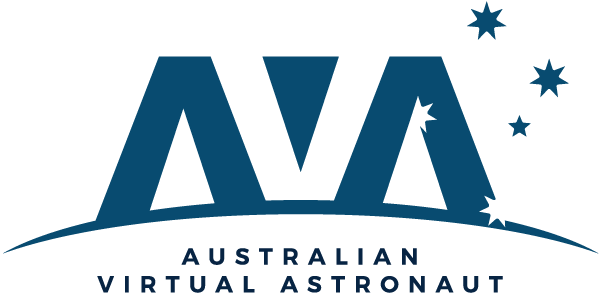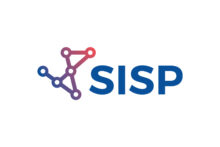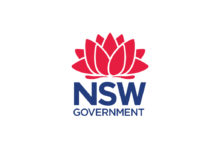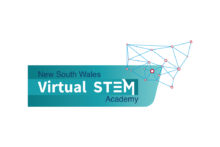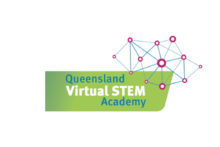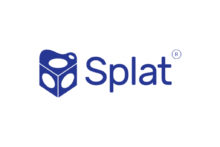Register for the 2024 challenge here
This is a FREE school challenge.
Curriculum links
The AVA Challenge is linked with both the Australian Curriculum, the NSW Curriculum & the Victorian Curriculum.
Read below for more details.
High School Outcomes
Australian Curriculum
Australian Curriculum High School Outcomes - Grade 10
High School Outcomes- Australian Curriculum
Grade 10
Science as a Human Endeavour
- Scientific understanding, including models and theories, is contestable and is refined over time through a process of review by the scientific community (ACSHE191)
- Advances in scientific understanding often rely on technological advances and are often linked to scientific discoveries (ACSHE192)
- People use scientific knowledge to evaluate whether they accept claims, explanations or predictions, and advances in science can affect people’s lives, including generating new career opportunities (ACSHE194)
- Values and needs of contemporary society can influence the focus of scientific research (ACSHE230)
Science Inquiry Skills
- Formulate questions or hypotheses that can be investigated scientifically (ACSIS198)
- Plan, select and use appropriate investigation types, including field work and laboratory experimentation, to collect reliable data; assess risk and address ethical issues associated with these methods (ACSIS199)
- Select and use appropriate equipment, including digital technologies, to collect and record data systematically and accurately (ACSIS200)
- Analyse patterns and trends in data, including describing relationships between variables and identifying inconsistencies (ACSIS203)
- Use knowledge of scientific concepts to draw conclusions that are consistent with evidence (ACSIS204)
- Evaluate conclusions, including identifying sources of uncertainty and possible alternative explanations, and describe specific ways to improve the quality of the data (ACSIS205)
- Critically analyse the validity of information in primary and secondary sources and evaluate the approaches used to solve problems (ACSIS206)
- Communicate scientific ideas and information for a particular purpose, including constructing evidence-based arguments and using appropriate scientific language, conventions and representations (ACSIS208)
Australian Curriculum High School Outcomes - Grade 9
High School Outcomes- Australian Curriculum
Grade 9
Science as a Human Endeavour
- Scientific understanding, including models and theories, is contestable and is refined over time through a process of review by the scientific community (ACSHE157)
- Advances in scientific understanding often rely on technological advances and are often linked to scientific discoveries (ACSHE158)
- People use scientific knowledge to evaluate whether they accept claims, explanations or predictions, and advances in science can affect people’s lives, including generating new career opportunities (ACSHE160)
- Values and needs of contemporary society can influence the focus of scientific research (ACSHE228)
Science Inquiry Skills
- Formulate questions or hypotheses that can be investigated scientifically (ACSIS164)
- Plan, select and use appropriate investigation types, including field work and laboratory experimentation, to collect reliable data; assess risk and address ethical issues associated with these methods (ACSIS165)
- Select and use appropriate equipment, including digital technologies, to collect and record data systematically and accurately (ACSIS166)
- Analyse patterns and trends in data, including describing relationships between variables and identifying inconsistencies (ACSIS169)
- Use knowledge of scientific concepts to draw conclusions that are consistent with evidence (ACSIS170)
- Evaluate conclusions, including identifying sources of uncertainty and possible alternative explanations, and describe specific ways to improve the quality of the data (ACSIS171)
- Critically analyse the validity of information in primary and secondary sources and evaluate the approaches used to solve problems (ACSIS172)
- Communicate scientific ideas and information for a particular purpose, including constructing evidence-based arguments and using appropriate scientific language, conventions and representations (ACSIS174)
Australian Curriculum High School Outcomes - Grade 8
High School Outcomes- Australian Curriculum
Grade 8
Science as a Human Endeavour
- Scientific knowledge has changed peoples’ understanding of the world and is refined as new evidence becomes available (ACSHE134)
- Science knowledge can develop through collaboration across the disciplines of science and the contributions of people from a range of cultures (ACSHE226)
- Solutions to contemporary issues that are found using science and technology, may impact on other areas of society and may involve ethical considerations (ACSHE135)
- People use science understanding and skills in their occupations and these have influenced the development of practices in areas of human activity (ACSHE136)
Science Inquiry Skills
- Identify questions and problems that can be investigated scientifically and make predictions based on scientific knowledge (ACSIS139)
- Collaboratively and individually plan and conduct a range of investigation types, including fieldwork and experiments, ensuring safety and ethical guidelines are followed (ACSIS140)
- Measure and control variables, select equipment appropriate to the task and collect data with accuracy (ACSIS141)
- Construct and use a range of representations, including graphs, keys and models to represent and analyse patterns or relationships in data using digital technologies as appropriate (ACSIS144)
- Summarise data, from students’ own investigations and secondary sources, and use scientific understanding to identify relationships and draw conclusions based on evidence (ACSIS145)
- Reflect on scientific investigations including evaluating the quality of the data collected, and identifying improvements (ACSIS146)
- Use scientific knowledge and findings from investigations to evaluate claims based on evidence (ACSIS234)
- Communicate ideas, findings and evidence based solutions to problems using scientific language, and representations, using digital technologies as appropriate (ACSIS148)
Australian Curriculum High School Outcomes - Grade 7
High School Outcomes- Australian Curriculum
Grade 7
Science as a Human Endeavour
- Scientific knowledge has changed peoples’ understanding of the world and is refined as new evidence becomes available (ACSHE119)
- Science knowledge can develop through collaboration across the disciplines of science and the contributions of people from a range of cultures (ACSHE223)
- Solutions to contemporary issues that are found using science and technology, may impact on other areas of society and may involve ethical considerations (ACSHE120)
- People use science understanding and skills in their occupations and these have influenced the development of practices in areas of human activity (ACSHE121)
Science Inquiry Skills
- Identify questions and problems that can be investigated scientifically and make predictions based on scientific knowledge (ACSIS124)
- Collaboratively and individually plan and conduct a range of investigation types, including fieldwork and experiments, ensuring safety and ethical guidelines are followed (ACSIS125)
- Measure and control variables, select equipment appropriate to the task and collect data with accuracy (ACSIS126)
- Construct and use a range of representations, including graphs, keys and models to represent and analyse patterns or relationships in data using digital technologies as appropriate (ACSIS129)
- Summarise data, from students’ own investigations and secondary sources, and use scientific understanding to identify relationships and draw conclusions based on evidence (ACSIS130)
- Reflect on scientific investigations including evaluating the quality of the data collected, and identifying improvements (ACSIS131)
- Communicate ideas, findings and evidence based solutions to problems using scientific language, and representations, using digital technologies as appropriate (ACSIS133)
NSW Years 7–10 Syllabus
NSW High School Outcomes - Stage 5
NSW Years 7–10 Syllabus
Stage 5
– iSTEM
This is a NSW Department of Education-approved elective that follows the iSTEM Engineering Design process. Use the iSTEM Process guide to describe different activities.
A student:
- ST5-1 designs and develops creative, innovative, and enterprising solutions to a wide range of STEM-based problems
- ST5-2 demonstrates critical thinking, creativity, problem solving, entrepreneurship and engineering design skills and decision-making techniques in a range of STEM contexts
- ST5-3 applies engineering design processes to address real-world STEM-based problems
- ST5-4 works independently and collaboratively to produce practical solutions to real-world scenarios
- ST5-5 analyses a range of contexts and applies STEM principles and processes
- ST5-6 selects and safely uses a range of technologies in the development, evaluation, and presentation of solutions to STEM-based problems
- ST5-7 selects and applies project management strategies when developing and evaluating STEM-based design solutions
- ST5-8 uses a range of techniques and technologies, to communicate design solutions and technical information for a range of audiences
- ST5-9 collects, organises, and interprets data sets, using appropriate mathematical and statistical methods to inform and evaluate design decisions
- ST5-10 analyses and evaluates the impact of STEM on society and describes the scope and pathways into employment.
Stage 5
– 7 to 10 Science Syllabus
A student:
- SC5-4WS
develops questions or hypotheses to be investigated scientifically - SC5-5WS
produces a plan to investigate identified questions, hypotheses or problems, individually and collaboratively - SC5-6WS
undertakes first-hand investigations to collect valid and reliable data and information, individually and collaboratively - SC5-7WS
processes, analyses and evaluates data from first-hand investigations and secondary sources to develop evidence-based arguments and conclusions - SC5-8WS
applies scientific understanding and critical thinking skills to suggest possible solutions to identified problems - SC5-9WS
presents science ideas and evidence for a particular purpose and to a specific audience, using appropriate scientific language, conventions and representations
Stage 4 & 5
– 7 to 10 Science Syllabus
A student:
- SC4-1VA, SC5-1VA
appreciates the importance of science in their lives and the role of scientific inquiry in increasing understanding of the world around them - SC4-2VA, SC5-2VA
shows a willingness to engage in finding solutions to science-related personal, social and global issues, including shaping sustainable futures - SC4-3VA, SC5-3VA
demonstrates confidence in making reasoned, evidence-based decisions about the current and future use and influence of science and technology, including ethical considerations
NSW High School Outcomes - Stage 4
NSW Years 7–10 Syllabus
Stage 4 & 5
– 7 to 10 Science Syllabus
A student:
- SC4-1VA, SC5-1VA
appreciates the importance of science in their lives and the role of scientific inquiry in increasing understanding of the world around them - SC4-2VA, SC5-2VA
shows a willingness to engage in finding solutions to science-related personal, social and global issues, including shaping sustainable futures - SC4-3VA, SC5-3VA
demonstrates confidence in making reasoned, evidence-based decisions about the current and future use and influence of science and technology, including ethical considerations
Stage 4
– 7 to 10 Science Syllabus
A student:
- SC4-4WS
identifies questions and problems that can be tested or researched and makes predictions based on scientific knowledge - SC4-5WS
collaboratively and individually produces a plan to investigate questions and problems - SC4-6WS
follows a sequence of instructions to safely undertake a range of investigation types, collaboratively and individually - SC4-7WS
processes and analyses data from a first-hand investigation and secondary sources to identify trends, patterns and relationships, and draw conclusions - SC4-8WS
selects and uses appropriate strategies, understanding and skills to produce creative and plausible solutions to identified problems - SC4-9WS
presents science ideas, findings and information to a given audience using appropriate scientific language, text types and representations
Victorian Curriculum
VIC High School Outcomes - Levels 9 & 10
High School Outcomes- Victorian Curriculum
Levels 9 & 10
Science as a Human Endeavour
- Scientific understanding, including models and theories, are contestable and are refined over time through a process of review by the scientific community (VCSSU114)
- Advances in scientific understanding often rely on developments in technology and technological advances are often linked to scientific discoveries (VCSSU115)
- The values and needs of contemporary society can influence the focus of scientific research (VCSSU116)
Science Inquiry Skills
- Formulate questions or hypotheses that can be investigated scientifically, including identification of independent, dependent and controlled variables (VCSIS134)
- Independently plan, select and use appropriate investigation types, including fieldwork and laboratory experimentation, to collect reliable data, assess risk and address ethical issues associated with these investigation types (VCSIS135)
- Select and use appropriate equipment and technologies to systematically collect and record accurate and reliable data, and use repeat trials to improve accuracy, precision and reliability (VCSIS136)
- Construct and use a range of representations, including graphs, keys, models and formulas, to record and summarise data from students’ own investigations and secondary sources, to represent qualitative and quantitative patterns or relationships, and distinguish between discrete and continuous data (VCSIS137)
- Analyse patterns and trends in data, including describing relationships between variables, identifying inconsistencies in data and sources of uncertainty, and drawing conclusions that are consistent with evidence (VCSIS138)
- Use knowledge of scientific concepts to evaluate investigation conclusions, including assessing the approaches used to solve problems, critically analysing the validity of information obtained from primary and secondary sources, suggesting possible alternative explanations and describing specific ways to improve the quality of data (VCSIS139)
- Communicate scientific ideas and information for a particular purpose, including constructing evidence-based arguments and using appropriate scientific language, conventions and representations (VCSIS140)
VIC High School Outcomes - Levels 7 & 8
High School Outcomes- Victorian Curriculum
Levels 7 & 8
Science as a Human Endeavour
- Scientific knowledge and understanding of the world changes as new evidence becomes available; science knowledge can develop through collaboration and connecting ideas across the disciplines and practice of science (VCSSU089)
- Science and technology contribute to finding solutions to a range of contemporary issues; these solutions may impact on other areas of society and involve ethical considerations (VCSSU090)
Science Inquiry Skills
- Identify questions, problems and claims that can be investigated scientifically and make predictions based on scientific knowledge (VCSIS107)
- Collaboratively and individually plan and conduct a range of investigation types, including fieldwork and experiments, ensuring safety and ethical guidelines are followed (VCSIS108)
- In fair tests, measure and control variables, and select equipment to collect data with accuracy appropriate to the task (VCSIS109)
- Construct and use a range of representations including graphs, keys and models to record and summarise data from students’ own investigations and secondary sources, and to represent and analyse patterns and relationships (VCSIS110)
- Use scientific knowledge and findings from investigations to identify relationships, evaluate claims and draw conclusions (VCSIS111)
- Reflect on the method used to investigate a question or solve a problem, including evaluating the quality of the data collected, and identify improvements to the method (VCSIS112)
- Communicate ideas, findings and solutions to problems including identifying impacts and limitations of conclusions and using appropriate scientific language and representations (VCSIS113)
Primary School Outcomes
Australian Curriculum
Australian Curriculum Primary School Outcomes - Grade 6
Primary School Outcomes
Australian Curriculum
Grade 6
Science as a Human Endeavour
- Science involves testing predictions by gathering data and using evidence to develop explanations of events and phenomena and reflects historical and cultural contributions (ACSHE098)
- Scientific knowledge is used to solve problems and inform personal and community decisions (ACSHE100)
Science Inquiry Skills
- With guidance, pose clarifying questions and make predictions about scientific investigations (ACSIS232)
- Identify, plan and apply the elements of scientific investigations to answer questions and solve problems using equipment and materials safely and identifying potential risks (ACSIS103)
- Decide variables to be changed and measured in fair tests, and observe measure and record data with accuracy using digital technologies as appropriate (ACSIS104)
- Construct and use a range of representations, including tables and graphs, to represent and describe observations, patterns or relationships in data using digital technologies as appropriate (ACSIS107)
- Compare data with predictions and use as evidence in developing explanations (ACSIS221)
- Reflect on and suggest improvements to scientific investigations (ACSIS108)
- Communicate ideas, explanations and processes using scientific representations in a variety of ways, including multi-modal texts (ACSIS110
Australian Curriculum Primary School Outcomes - Grade 5
Primary School Outcomes
Australian Curriculum
Grade 5
Science as a Human Endeavour
- Science involves testing predictions by gathering data and using evidence to develop explanations of events and phenomena and reflects historical and cultural contributions (ACSHE081)
- Scientific knowledge is used to solve problems and inform personal and community decisions (ACSHE083)
Science Inquiry Skills
- With guidance, pose clarifying questions and make predictions about scientific investigations (ACSIS231)
- Identify, plan and apply the elements of scientific investigations to answer questions and solve problems using equipment and materials safely and identifying potential risks (ACSIS086)
- Decide variables to be changed and measured in fair tests, and observe measure and record data with accuracy using digital technologies as appropriate (ACSIS087)
- Construct and use a range of representations, including tables and graphs, to represent and describe observations, patterns or relationships in data using digital technologies as appropriate (ACSIS090)
- Compare data with predictions and use as evidence in developing explanations (ACSIS218)
- Reflect on and suggest improvements to scientific investigations (ACSIS091)
- Communicate ideas, explanations and processes using scientific representations in a variety of ways, including multi-modal texts (ACSIS093)
NSW Curriculum
NSW Science and Technology K–6 Syllabus
NSW Science and Technology K–6 Syllabus
Stage 3
A student
- ST3-1WS-S
plans and conducts scientific investigations to answer testable questions, and collects and summarises data to communicate conclusions - ST3-2DP-T
plans and uses materials, tools and equipment to develop solutions for a need or opportunity - ST3-3DP-T
defines problems, and designs, modifies and follows algorithms to develop solutions - ST3-11DI-T
explains how digital systems represent data, connect together to form networks and transmit data
NSW Geography K - 10
NSW Geography K – 10
Stage 3
A student
- GE3-1
describes the diverse features and characteristics of places and environments - GE3-2
explains interactions and connections between people, places and environments
Victorian Curriculum
Victorian Curriculum - Science - Levels 5 & 6
Primary School Outcomes- Victorian Curriculum
Levels 5 & 6
Science as a Human Endeavour
- Scientific understandings, discoveries and inventions are used to inform personal and community decisions and to solve problems that directly affect people’s lives (VCSSU073)
Science Inquiry Skills
- With guidance, pose questions to clarify practical problems or inform a scientific investigation, and predict what the findings of an investigation might be based on previous experiences or general rules (VCSIS082)
- With guidance, plan appropriate investigation types to answer questions or solve problems and use equipment, technologies and materials safely, identifying potential risks (VCSIS083)
- Decide which variables should be changed, measured and controlled in fair tests and accurately observe, measure and record data (VCSIS084)
- Construct and use a range of representations, including tables and graphs, to record, represent and describe observations, patterns or relationships in data (VCSIS085)
- Compare data with predictions and use as evidence in developing explanations (VCSIS086)
- Suggest improvements to the methods used to investigate a question or solve a problem (VCSIS087)
- Communicate ideas and processes using evidence to develop explanations of events and phenomena and to identify simple cause-and-effect relationships (VCSIS088)
Victorian Curriculum - Geography - Levels 5 & 6
Primary School Outcomes- Victorian Curriculum – Geography
Levels 5 & 6
Place, space & interconnection
- Describe and explain the diverse characteristics of places in different locations from local to global scales
- Describe and explain interconnections within places and between places, and the effects of these interconnections
Factors that shape places and influence interconnections
- Environmental and human influences on the location and characteristics of places and the management of spaces within them
